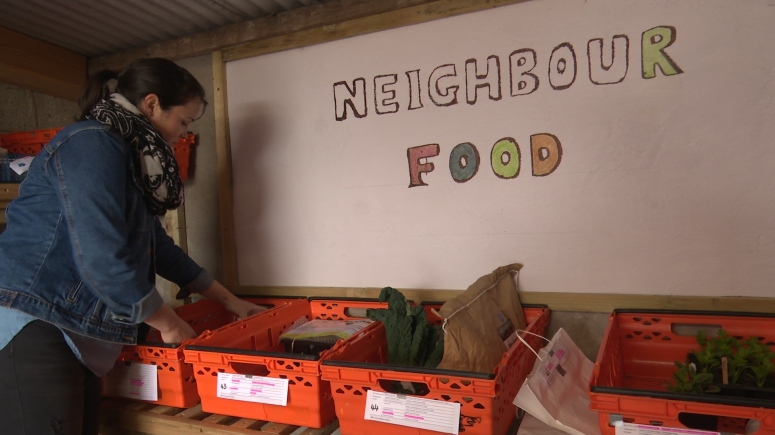For the majority organic and local food is linked with the idea of a farmers market, and a limited niche market with a limited customer base. Far from the serious world of global food supply chains and the work of the majority of farmers.
Yet there is increasingly emerging in Ireland the foundations of an alternative food system. A more than welcome development as the need for radical action to ensure a sustainable future is increasingly pressing, business as usual cannot continue, nor can we expect ordinary people to pay for the climate crimes of the big producers.
Farming is one area in which practical steps benefit everyone concerned as the current system is failing farmers and is contributing to climate breakdown . The failures of the modern agriculture system to provide a sustainable income for the vast majority of farmers or to minimise the impact on the environment is a global problem however short suistainable supply chains provide a locally focused solution.
As mainstream farming organisations challenge the rationale behind more bord bia red tape, and lobby for increased financial subsidies to address any disruption caused by Covid19. Small producers many of who receive little or no support from the department of agriculture, due to the size of their farms have been to the fore in developing alternative short supply chains that are both sustainable and ensuring a decent income for farmers.
The principle of producers working together to secure their income has of course a long tradition in Ireland, it is essentially the same motivation of the original dairy cooperatives which were set up in the early 20th century, and have transformed Irish dairy farming into both a profitable and globally competative industry.
A modern twist to this basic principle has been provided by online platforms which allow farmers and producers to market their produce directly to customers, something which has proven vital due to covid19.
A small number of vegetable producers have embraced direct sales through veg box schemes, and community supported agriculture, a model whereby customers commit to buying a share of a farmers harvest and encourages a much closer relationship between farmers and customers. This model has allowed small producers in many European countries and Europe to for a close relationship with their customers, while also giving customours a greater degree of involvement in the production of their food, with some CSA’s allowing members to participate in aspects of production.
While in limerick the urban co-op operates as a cooperative store owned by its members and is supplied by a wide range of local producers. This model allows the customers to control the co-op and ensure profits are utilised in a way that benefits the members and serves the needs of the community.
Another example of the beneficial role of co-ops in agriculture in recent years has been the Leitrim organic farmers co-op which has supported organic farmers in both processing and marketing their beef and lamb, and in building important networks between organic farmers in the west of Ireland primarily.

Among the majority of beef and sheep farmers low prices have become the norm as the system is dominated by a handful of factory owners, the creation of a co-op by farmers to either control the supply to the processors or to even process and market their own beef would dramatically improve the position of beef farmers.
Co-ops have also been central in the Irish fishing industry with co-ops in all of Irelands main fishing ports and have supported members in navigating the complex world of European fisheries policies, and managing the sale of each members catch and boat maintanence.
A relativly recent development in Ireland is the emergence of the neighbour food distribution network. This online platform, while not a co-op, gives producers a platform for direct sales and is organised around local groups with a host who is responsible for organising the collection point, allowing them to reach a wider market and gives shoppers a wide choice of products, similar to an ordinary online supermarket.

The platform launched in 2018 and has grown since then to the stage where there are now 41 groups around Ireland with a wide range of local food producers participating selling meat, eggs, vegetables, dairy and a wide range of other products.
Despite the hard work of the producers, co-op members, and everyone involved in these various initiatives they represent a tiny share of the market in Ireland, and for too many local sustainable food is seen as a niche product. This is despite the success of dairy co-ops providing a clear example of the benefits of co-ops for the local economy, and the impending challenges of climate change making it clear that drastic change is needed.
Instead the government offers very limited support to either small producers or those involved in developing co operatives.
Yet these various initiatives show the benefit of these measures with support from the government could provide the framework for developing an alternative food system which is focused on quality produce, providing a fair income for food producers, sustainability, and importantly is accessible to the majority of people.
